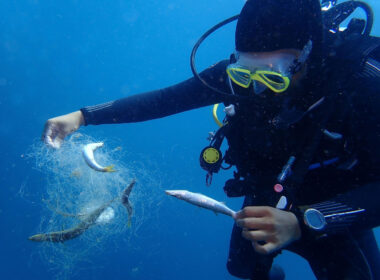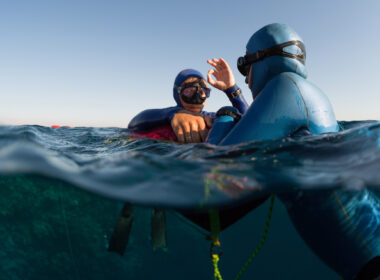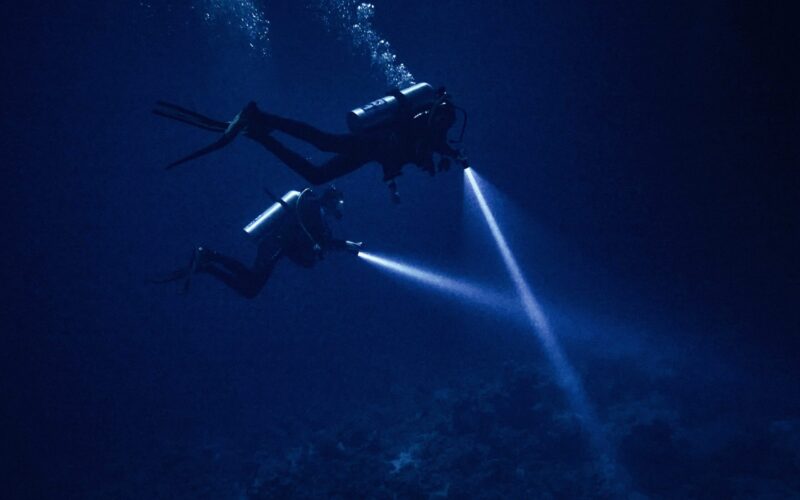Night diving can be an exhilarating and unique experience, offering divers a chance to witness marine life and underwater landscapes in a completely different light—or rather, lack thereof. However, diving in the dark brings its own set of challenges and risks. Here are six tips to ensure you can enjoy safe and stress-free night diving.
Night diving brings new wonders to explore, but one thing stays the same—your need for reliable coverage. Just like you wouldn’t dive without a dive torch, don’t dive without insurance. Protect yourself, day or night!
1. For Stress-Free Night Diving – Obtain Specialized Certification
Before embarking on a night dive, it’s crucial to receive proper training. Specialized certifications like the SSI Night and Limited Visibility Diving course or the PADI Night Diver course are designed to prepare you for the specific conditions and challenges of diving at night. These courses cover essential skills such as navigation, communication, and the use of dive lights, ensuring you are well-prepared and confident. These specialties typically include a minimum of two specialized dives with a diving instructor to guide you step by step through the dive, ensuring that you feel comfortable throughout and allowing you to put into practice all that you have learned in the classroom.
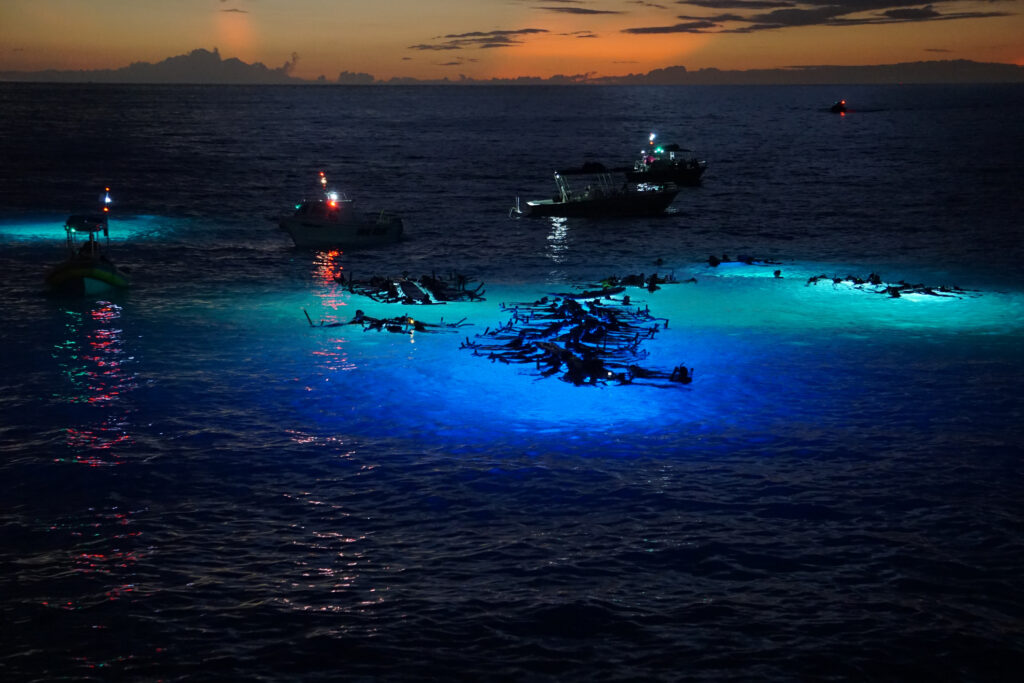
Do you struggle with predive stress in general? Check out this blog post on top tips to reduce predive stress and enjoy a more relaxing dive.
2. Dive with a Professional
Even after completing a specialty course in night diving, you should still consider practicing night diving with a diving professional such as a dive guide, or diving instructor. In the very least a dive buddy with a lot of night diving experience. Diving with an experienced dive buddy or guide is invaluable, especially during a night dive, and can make the difference between a relaxing dive without any incident and a stressful dive where you feel panicked and lost.
Professionals can help you navigate the dive site, manage potential issues, and provide an additional layer of safety. They are familiar with local conditions and additionally can point out interesting nocturnal marine life you might otherwise miss, making the whole experience more worthwhile and enjoyable.
3. Use Reliable Lighting
Proper lighting is crucial for night diving. Equip yourself with at least two underwater dive lights—a primary light and a backup. Your primary light should be strong enough to illuminate your surroundings, while your backup light should be easily accessible in case your primary light fails.
When selecting a dive light, consider the following factors:
- Diving Environment: For open water night dives, a primary light with a wide beam is suitable. Technical or cave diving may require canister lights, with separate battery packs.
- Brightness and Beam Angle: Higher lumens provide more illumination, while the beam angle affects coverage. A narrow beam is good for distance, and a wide beam is better for general visibility.
- Battery Life: Ensure the light has sufficient burn time for your dive duration. Rechargeable options are cost-effective for frequent diving. It is now common to find diving torches with microUSB or USB-C charging ports, for easy and efficient charging without having to remove the battery from the torch.
- Durability and Depth Rating: Check the build quality and depth rating to ensure the light can withstand your diving conditions.
- Ergonomics and Ease of Use: Consider the size, weight, and ease of operation underwater, especially with gloves.
Consider attaching a small, constant marker light to your tank or BCD for easy identification by your dive buddy.
Hot Tip! Ensure you charge both primary and secondary diving lights the morning before your night dive to ensure optimal duration.
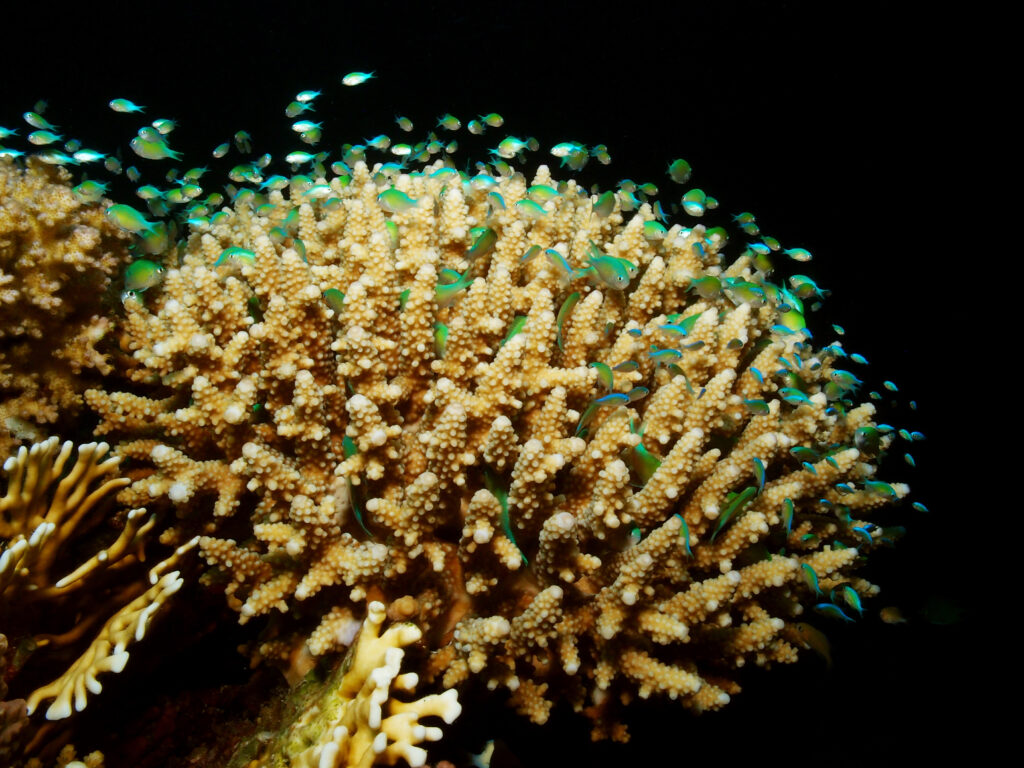
4. Equip Yourself with Safety Accessories
Other than dive lights, several other accessories can enhance your safety during a night dive. Glow sticks or marker lights can be attached to your gear for better visibility. On dive sites where you know there may be many different dive groups it can make sense to use glow sticks of one particular colour to ensure you stick with the right group. Taking a dive slate with a luminescent surface will allow you to communicate easily with your buddy in the dark.
A whistle or noise-maker is also useful for signaling in case of emergencies. You may want to discuss particular noises to use for different scenarios, to ensure that neither you nor your buddy panic if someone makes a noise because they have seen an interesting marine creature, on the other hand, so as not to ignore an emergency signal thinking that your dive buddy just wants to show you a lionfish!
5. Prioritize Navigation and Orientation
Maintaining a sense of direction is more challenging at night. You will practice underwater navigation during your night dive specialty, but it might be advisable to attend on a navigation specialty to ensure you are truly confident in your own skills.
If possible, only dive at night on sites you already are familiar with during the day.
Use a compass to help with navigation and make a mental note of the topography of the dive site during the day if possible. Regularly check your depth and air supply, and stay close to your dive buddy. Agree on signals and remain within sight of each other to avoid getting lost.
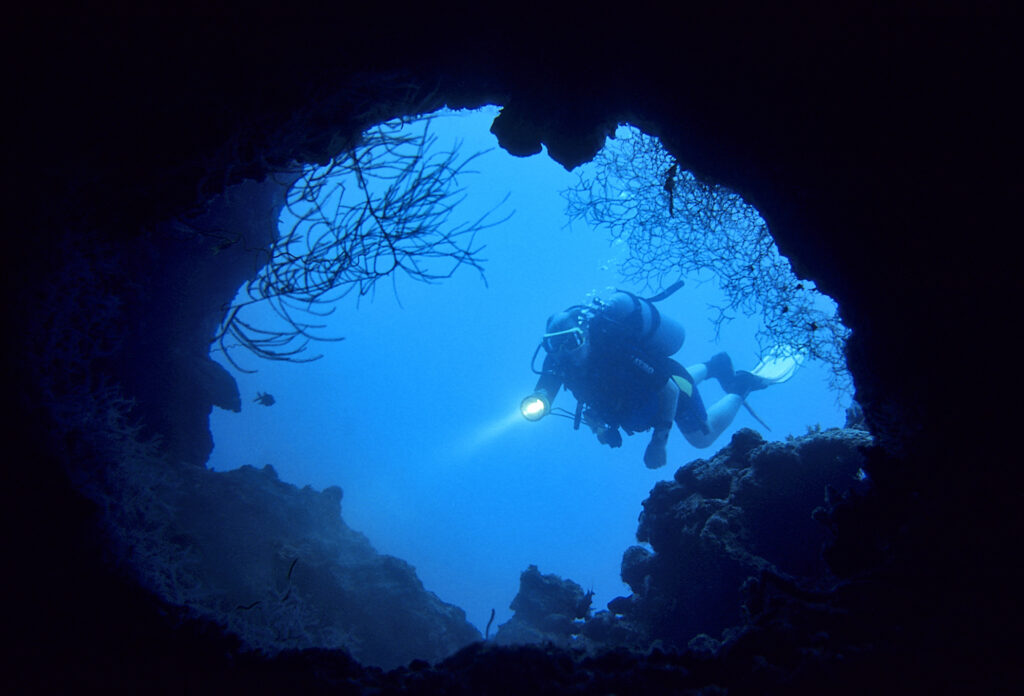
6. Prepare for the Unexpected
Night diving can be unpredictable, so it’s essential to be prepared for any situation. Ensure your dive plan includes a detailed briefing covering entry and exit points, emergency procedures, and lost diver protocols. Carry a surface marker buoy (SMB) and a cutting tool. Familiarize yourself with the local marine life and potential hazards to avoid unpleasant surprises.
Night diving offers a thrilling opportunity to explore the underwater world in a new way. By obtaining specialized training, diving with a professional, using reliable lighting, equipping yourself with essential accessories, prioritizing navigation, and preparing for the unexpected, you can enjoy a safe and stress-free night dive.
As with any type of diving, you should always dive with a comprehensive diving accident insurance. Follow this link to get a short term or annual coverage today!
Happy diving!



